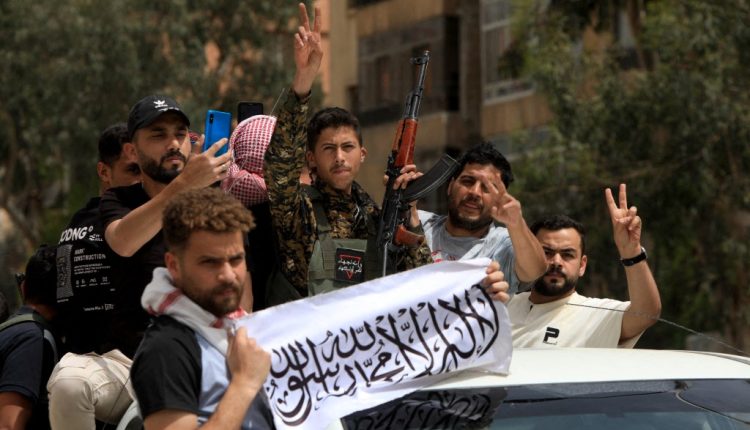Syria: Religious Doctrine as a Political Tool
By Khaled Al-Mutlak
Syria has deep geopolitical and historical significance in the Middle East. The complex and intertwined interaction between politics and religious faith has always been the cornerstone in shaping the modern Syrian state and its turbulent development path. Throughout history, Syria has been a fertile ground where the roots of the interaction between politics and faith have grown deep. These roots passed through four main stages, the first of which was ancient Syria. In this early period, before the emergence of the major monotheistic religions, religious beliefs functioned more like fundamental rules for society. They were not merely personal devotions but determined how people lived, who governed them, and how affairs were managed. The ruler was often viewed as someone blessed or associated with the gods, which granted them special authority.
During the Islamic era, with the spread of Islam, the religion became a central force in Syria. It was no longer just a faith but became an integral part of the culture and identity of the people. The regimes that governed Syria during this period derived their power and legitimacy from Islam. Laws and customs were influenced by religion, and Islam significantly contributed to shaping the Syrian identity we recognize today. During the Ottoman rule, which lasted for centuries, the Ottomans employed a clever approach to managing religious and ethnic diversity, known as the ‘millet system’.Simply put, the French colonial authorities allowed each religious group—such as Muslims, Christians, and Jews—to manage their own affairs related to personal matters (such as marriage and divorce) through their religious leaders.
This system maintained a certain level of peace but also entrenched the idea of separate religious identities within society. During the French Mandate period, after World War I and France’s control over Syria, its colonial policies greatly influenced the religious and political balances. In this era, nationalist movements seeking independence also emerged, bringing together individuals from various religious backgrounds. This added a new dimension to the relationship between religion and politics in the context of the struggle for independence. In summary, through these four main stages, it becomes clear that the relationship between religion and politics in Syria has a long and complex history, with its nature and influence evolving over time—contributing to the current situation.
The Modern Syrian State
After independence, Syria sought to embark on the journey of building a modern state, but it faced a significant challenge: how to unify a population that was religiously and ethnically diverse under a single banner? In reality, after the end of the French mandate, Syria struggled to establish a unified national identity. The presence of strong religious and ethnic diversity made the challenge to make all these groups feel a sense of belonging to Syria as one homeland rather than emphasizing their individual identities.
At this point, the idea of ‘Arab nationalism’ emerged as a potential solution for unity. This idea aimed to build a shared identity based on the Arabic language, history, and culture rather than religion. Initially, Arab nationalism had significant influence, as it sought to diminish the importance of religious and ethnic affiliations in politics.
When the Baath Party came to power, it embraced a secular (non-religious), socialist, nationalist ideology. At first, the Baath sought to diminish the role of religion in public life and politics. However, over time, the party began to use religion selectively or pragmatically to achieve political objectives, such as fostering national unity or gaining support from specific groups. These policies affected the balances among various religious and sectarian groups within the country.
In response to state policies that some perceived as marginalizing religion or restricting religious freedoms, Islamist movements started to emerge and develop within society and politics. These movements aimed to restore and enhance the role of religion in public life and decision-making, gradually becoming a more influential force.
In short, the effort to build a modern and unified Syrian state faced the challenge of diversity. While Arab nationalism initially offered a secular solution, ultimately, the role of religion (faith) increased in prominence—either through its use by the state or through the rise of Islamic movements.
Religion as a Tool of Conflict and Mobilization
Religion often becomes a weapon used in political battles. Through political sectarianism, we find that instead of religious and sectarian affiliations being merely part of people’s identities, they have been exploited in political conflicts. In other words, some parties have used individuals’ belonging to a particular sect to gain support against another sect or to justify acts of violence and discrimination. This exploitation of religious affiliations is called “political sectarianism.”
The role of religious discourse in fueling crises has a significant impact on mobilizing and inciting conflicts, often through some leaders or groups who use religious language in ways that stir discord and hatred among people. Instead of religion serving as a source of peace and tolerance, it has been used to rally supporters against “infidels,” “misguided,” or “enemies” belonging to another sect. This kind of extremist religious rhetoric has contributed to exacerbating crises and transforming political disputes into religious conflicts.
Regional and international factors have also played a major role in fueling doctrinal conflicts through the intervention of regional and international powers in Syrian affairs. These external actors often supported different parties based on their sectarian or confessional affiliations. Such external backing intensified and deepened sectarian divisions, turning the conflict into a battleground for regional and international rivalries with sectarian dimensions.
The political conflict in the Syrian revolution evolved into a devastating civil war, in which sectarianism and ideology played a clear role. The conflict was no longer just about demands for freedom, dignity, and democracy but took on sectarian and ideological dimensions. Groups belonging to different sects or religious interpretations fought against each other, and religious affiliation often became a reason for targeting and violence.
Attempts to Transcend Division and Build a Civil State
After years of conflict and the fall of the Assad regime, Syria is striving to build a new future that overcomes divisions. To achieve this crucial goal, some ideas can be considered:
- 1-Dialogue and Reconciliation Initiatives:
Efforts must be made to bring Syrians from different backgrounds together for dialogue and understanding. The aim is to build bridges of trust and reconciliation among the various components of Syrian society—whether religious, ethnic, or political—and to reach peaceful solutions to existing problems. - 2- The Importance of Separating Religion from the State:
A fundamental idea is the necessity of establishing a civil or secular state. This means that government institutions and laws should be neutral and not favor any religion or sect over others. The goal is to guarantee equal rights for all citizens, regardless of their religious or non-religious beliefs. In other words, the state should treat all citizens as citizens first and foremost. - 3- Challenges of Building an Inclusive Civil State:
The path toward establishing a civil state in Syria is neither easy nor free of obstacles. Internal challenges include deep-seated divisions and a sectarian culture that took root during the conflict. External challenges involve the interventions of regional and international powers with differing agendas. Building trust, achieving reconciliation, and changing mindsets will require significant time and effort. - 4- Comparative Models:
To look toward the future with optimism, it is essential to review the experiences of other countries that have successfully managed religious diversity and built stable civil states. These examples can offer valuable lessons and ideas for Syria on how to handle diversity and develop a just and stable political and social system for everyone.
In conclusion, the journey through Syria’s history highlights an important point: the relationship between politics and religion (faith) has always been complex and intertwined, leaving clear marks on every stage of the country’s development. It has influenced national unity, political stability, and even people’s rights and freedoms. The key lesson from this history is that building a stable future for Syria requires a deep understanding of this interaction.
To overcome current challenges, it is essential to work towards establishing a state that respects the diversity of its people and guarantees the rights of all citizens, regardless of their beliefs. Achieving this requires a focus on inclusive national dialogue, the development of strong and just institutions that clearly separate religion from the state, and the implementation of educational curricula that promote tolerance and shared citizenship.
Looking to the future, Syria faces significant challenges, but there are also opportunities to build a new state founded on justice, equality, and respect for diversity. Although the road ahead is long and arduous, hope remains in a new generation of Syrians capable of shaping a better future.
Understanding the relationship between politics and faith is critical for understanding both Syria’s present and its future. Many questions still deserve further research and exploration, such as: How can we build a Syrian state that respects religious diversity and ensures a clear separation between religion and state, guaranteeing the rights of all citizens? What internal and external factors will influence the future of this relationship in Syria?




Comments are closed.